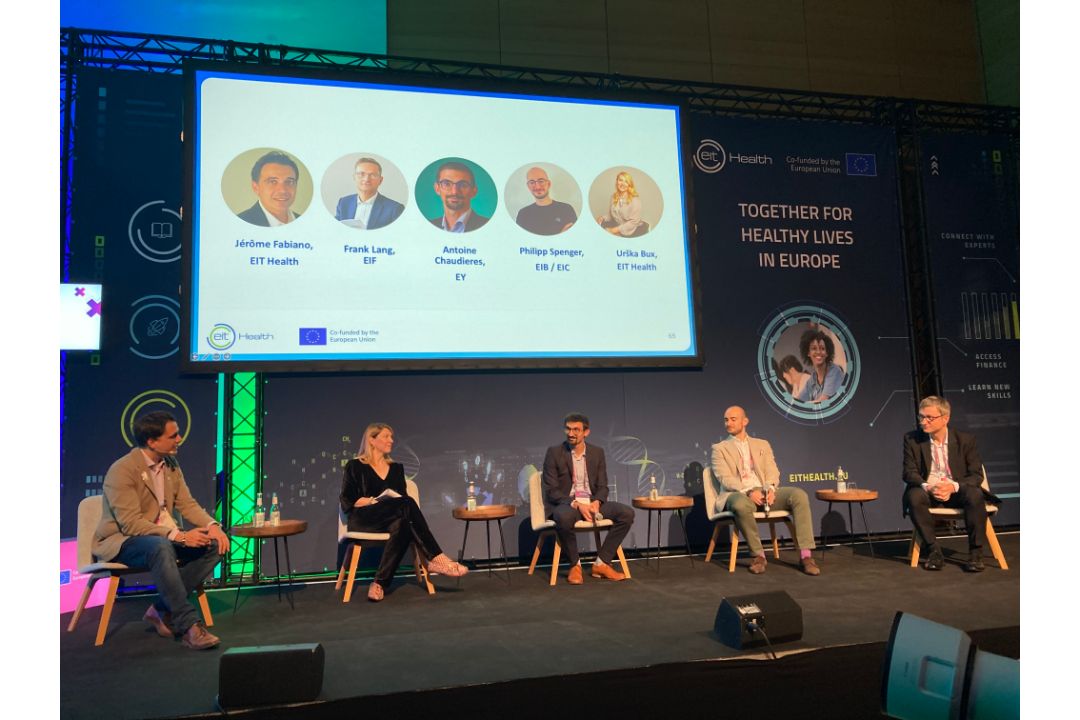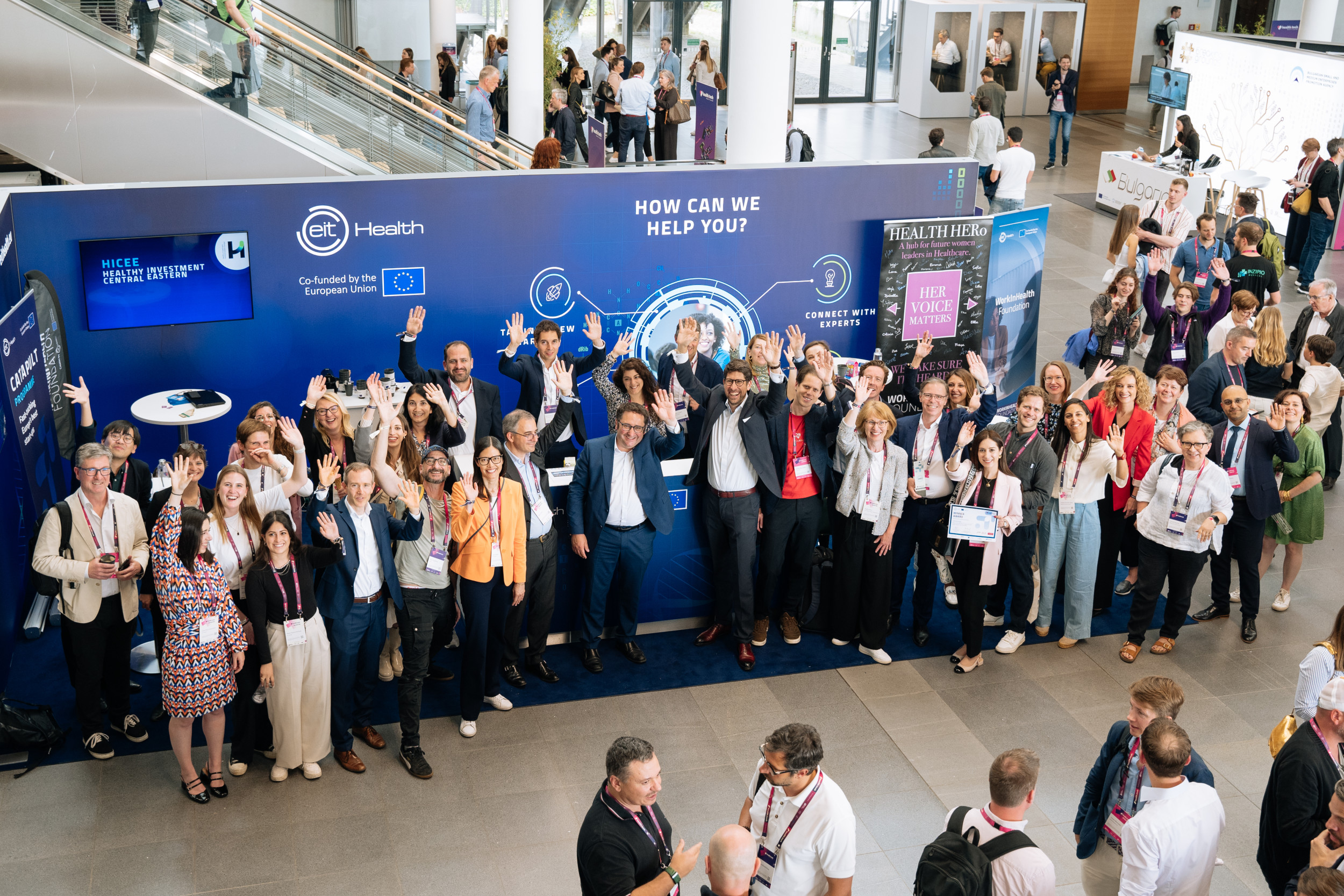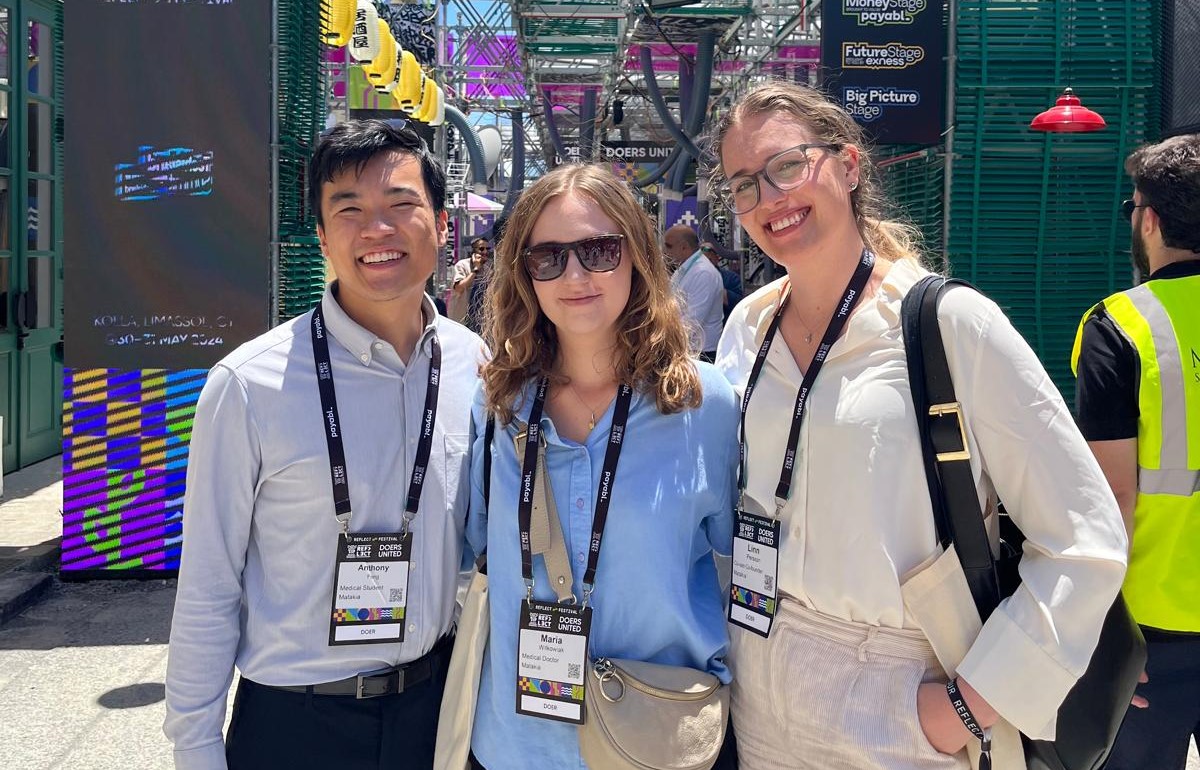7th June 2022
A brand-new solution for early identification of iron deficiency, an innovative device for preventing infections after surgery, a virtual companion that helps children acquire healthy digital habits, along with a revolutionary device aiming to alleviate the excessive burden on the emergency department of hospitals have been shortlisted among the semi-finalists of the InnoStars Awards 2022.
As one of EIT Health’s most competitive accelerator programmes, the annual InnoStars Awards conduces the transformation of healthcare ideas into viable enterprises. In the context of the EIT Regional Innovation Scheme (RIS), the InnoStars Awards aims for early-stage healthcare start-ups from the Central, Eastern and Southern parts of Europe. This year InnoStars Awards celebrates its seventh edition, with an outstanding number of high-quality applications.
To demonstrate the appeal and professional value of the InnoStars Awards, we let the numbers speak for themselves. Altogether 108 eligible applications from 18 European countries were submitted in 2022. Among them, Italy stands out with its 13 applicant start-ups. The InnoStars Awards also attracted considerable interest in Romania, Spain, Portugal, Turkey, Greece, and Hungary, with at least 8 candidate companies partaking from every country.
Each of the 20 start-ups listed below will receive a grant of €25,000 to develop their business further. During their participation, the semi-finalist start-ups gain financial and professional support, while also being provided with the opportunity of high-level networking and mentoring.
As secured in the programme’s timeline, 20 teams with the most promising innovations are now introduced. Seven come from Italy, four from Spain, three from Greece, two from Turkey, and one from Estonia, Hungary, Romania, and Czechia.
Additionally, projects focusing on active ageing have been selected for the Healthy Longevity Global Grand Challenge, a global innovation competition founded by the United States National Academy of Medicine (NAM).
InnoStars Awards 2022 semi-finalists
- Quick and Easy AMR detection (QE-AMR) (Bioridis – Italy): a revolutionary test method to identify antimicrobial resistance (AMR), which is an intensively growing threat worldwide.
- Ferella (Fidelio Medical – Italy): a digital diagnostic solution for the early identification of iron deficiency. It helps prevent iron deficiency from causing more severe health problems and offers preemptive and targeted treatments.
- Medicud (Italy): an innovative and ultraportable device for preventing infections after surgery. Medicud aims to make Negative Pressure Wound Therapy (NPWT) widely available and usable.
- BOSET- Blood transfusion monitoring device (Idea Società Cooperativa – Italy): a reusable real-time monitoring device ensuring the traceability of transfusion blood bags and adequate cold chain conditions during transport. BOSET accurately records temperature, humidity, delivery and storage time, light exposure, expiry date and donor information.
- Immunotherapies for Humans, Biomanufactured in Plants (Diamante – Italy): a novel therapeutic approach for autoimmune diseases based on the restoration of self-tolerance, using harmless plant viruses to present immunomodulatory peptides.
- MyLab (Lightscience – Italy): a modular, multiparametric, portable blood analysis system for detecting Phenylketonuria (PKU), the most common inborn metabolic error of amino acids. MyLab is based on IoT, AI and cloud computing.
- TTOP – True Tissue on a Platform (Italy): a new solution enabling a safer, cost-effective, faster drug development process. They developed a platform to build micro physiological human models to improve drug candidates selected for the clinical phase and minimize the controversial use of animal models.
- Advanced antibacterial wound dressing (Nanordica Medical – Estonia): an innovative solution for wound infection. The Estonian start-up’s antibacterial wound dressing (AWD) removes bacterial infection eight times better than the similar tools currently on the market, reducing the rate of infection-related amputations in diabetics.
- Sprin (DP Innovations – Hungary): a pocket-sized smart nebulizer that helps to deliver precision medication in a safer, more effective, and pain-free way. Sprin aims to reduce the medication waste to make inhaled drug delivery the best type of treatment.
- Life (Smart EpiGenetX – Romania): ultra-personalized recommendations on food and supplements that best suit nutritional needs and planet sustainability. To increase the targeted nutrition accuracy, NutriCare.Life uses results of genetic, blood and urine at-home medical testing.
- Solid lipid encapsulation for poorly water-soluble active ingredients (Marblemat – Czechia): a novel solution to the problem of poorly water-soluble substances. The standard gelatine capsules increase the bioavailability of the compounds, reduce potential adverse effects and improve handling properties while allowing flexibility of dosage or multi-compound combinations.
- Mymmo (Colors of Talent – Spain): a developed virtual companion that helps children acquire healthy digital habits and rediscover their natural curiosity for learning.
- SmartLungDx (Breaz Medical – Spain): a novel solution for accessible diagnosis and monitoring of lung diseases to reduce a large number of under- and incorrect diagnoses, premature deaths, and enormous costs to society
- Holistic Digital Therapies Against Stress (WeVoice – Spain): a conscious immunity against stress to prevent the biggest pandemic of 21 century. WeVoice tries to democratize access to holistic mental health, increase global awareness and connectedness so that people can get back the best version of them.
- SeptiLoop Cell-mediated immune response diagnostics to early predict sepsis (Loop Diagnostics – Spain): a proposed way of standardizing and digitalizing the patient’s immune status. SeptiLoop seeks to obtain objective, quantifiable, physiological, and clinically relevant information for the early diagnosis of sepsis infection that allows its rapid treatment.
- Balloon Anchoring for Stenosis (Shuttle Catheters – Greece): a revolutionary technology for chronic, severe arterial stenosis. By avoiding open bypass surgeries, the mortality rate and the financial burden of the healthcare system can be reduced.
- Quantum Pupillometry (Quantum Biometronics – Greece): a laser pupillometer that stimulates the retina with “surgical” precision. The synthesis of quantum technology and biotechnology opens a new window into an early medical diagnosis of retina and nervous system diseases.
- EMMA – Emergency Medicine Medical Assistant (Vidavo – Greece): a revolutionary device that aims to alleviate the excessive burden on the emergency department of hospitals. Vivado established a Clinical Decision Support System that supports ER personnel in triaging incoming patients, allowing them to work with peace of mind and offers better healthcare services
- Vagustim (Assisting Lives Through Bioelectronic Medicine – Turkey): a therapeutic med-tech device for patients suffering from digestive diseases (primarily IBD). Vagustim creates a treatment opportunity for patients who cannot be treated with current methods because the customized stimulation of the vagus nerve decreases inflammation in the body.
- Breast Milk Filter and Quick Test Kit Set (Inodove R&D – Turkey): an innovative solution for examining the composition of breast milk. The “PUREMILK” breast milk set includes a rapid and sensitive test that shows whether there are unwanted chemicals in breast milk and a filter that captures those drugs in breast milk like a magnet.
New report reveals skills gaps impeding healthtech innovation

A must-read for healthcare start-ups and venture capitalists
Perspectives on the HealthTech ecosystem

Key takeaways from the health.tech conference 2024
